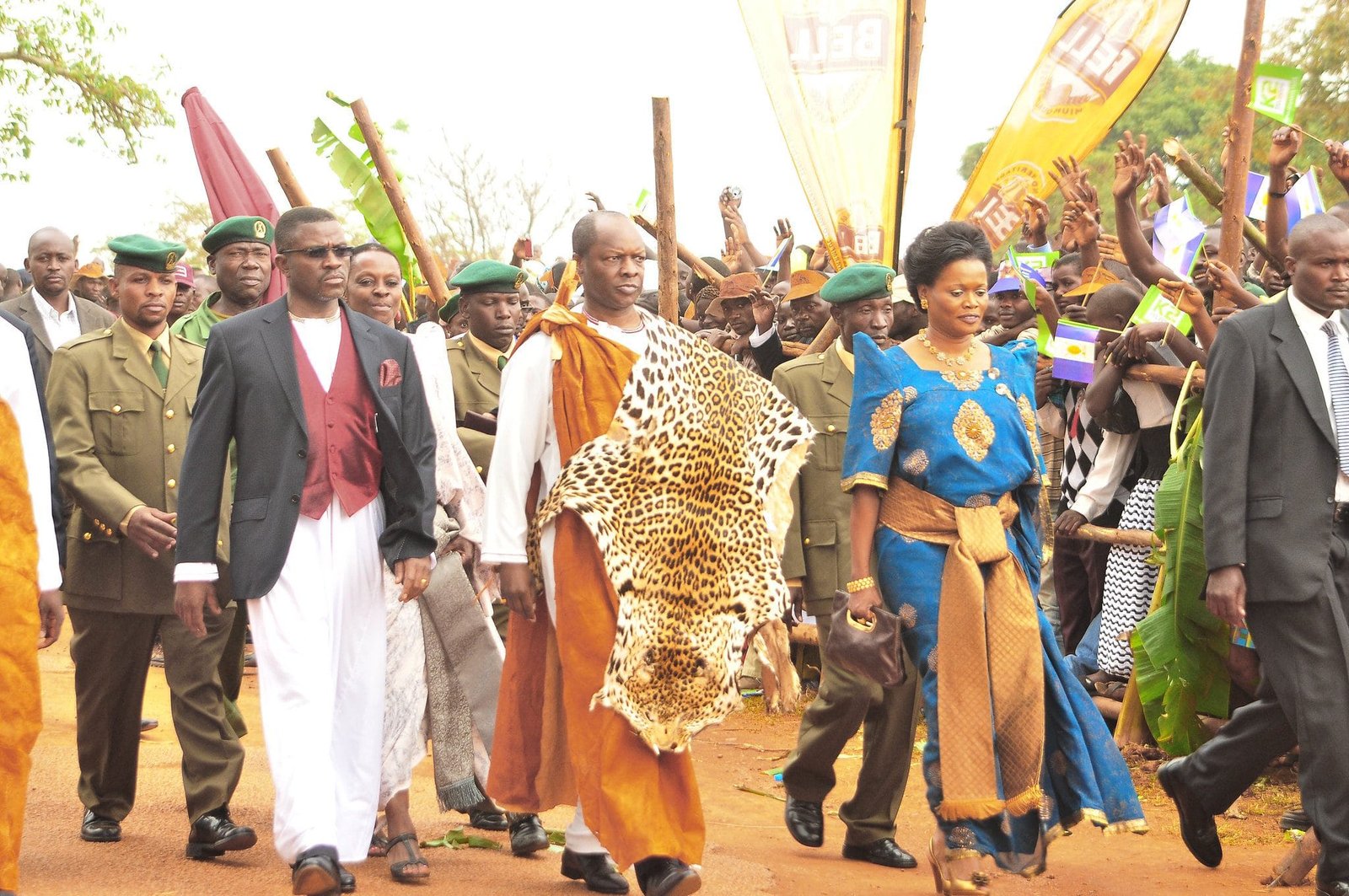
INTERNATIONAL
info@allinafricasafaris.com
INTERNATIONAL, 24/7 Help Support
USA/CANADA | M-F 9:00 am - 5:00 pm

The Buganda Kingdom, which is located in modern-day Uganda, is a fascinating tapestry of history, culture, and customs. It is a renowned and influential East African monarchy noted for its lively culture, regal legacy, and dynamic contemporary presence. We’ll dig into the realm of Buganda Kingdom in this essay, shining light on its rich history, cultural significance, and ongoing impact.
The Buganda Kingdom’s history dates back centuries, with its origins rooted in the formation of various clans and chiefdoms in the region. These clans eventually coalesced to form a centralized kingdom under the leadership of a king known as the “Kabaka.”
The Buganda Kingdom is renowned for its line of Kabakas (kings) who have ruled the kingdom for generations. Each Kabaka plays a crucial role in shaping the kingdom’s destiny and preserving its cultural heritage.
The Buganda Kingdom boasts a rich tapestry of cultural traditions and rituals. These include elaborate coronation ceremonies, vibrant dances, and the revered Buganda Royal Drums, which are an integral part of royal and cultural events.
Luganda is the primary language spoken in Buganda, and it serves as a vehicle for the transmission of culture and tradition. Customary practices, including birth rituals, marriage ceremonies, and funeral traditions, reflect the kingdom’s deep cultural roots.
Buganda society is organized into clans, each with its totem, rituals, and responsibilities. These clans are essential in maintaining social order and preserving cultural identity.
While the Buganda Kingdom no longer holds political power in Uganda, it plays a significant role in the country’s political landscape. The kingdom wields cultural influence and serves as a symbol of unity and identity for the Baganda people.
The kingdom has actively engaged in various economic ventures, including agriculture, education, and tourism. Initiatives such as Kabaka’s Lake and the Buganda Land Board demonstrate the kingdom’s commitment to development and prosperity.
Buganda hosts vibrant cultural festivals like the Buganda Kingdom Annual Tourism Expo, which showcases the kingdom’s traditions, arts, crafts, and cuisine. These events attract both local and international visitors.
In conclusion, The Buganda Kingdom exemplifies the lasting power of culture and tradition. It is a living history museum, a symbol of cultural resilience, and a vital element of Uganda’s social fabric. As Buganda embraces its legacy while adjusting to modern challenges, it remains a source of cultural identity and pride for the Baganda people, as well as a riveting destination for visitors interested in the kingdom’s rich history and colorful customs.






